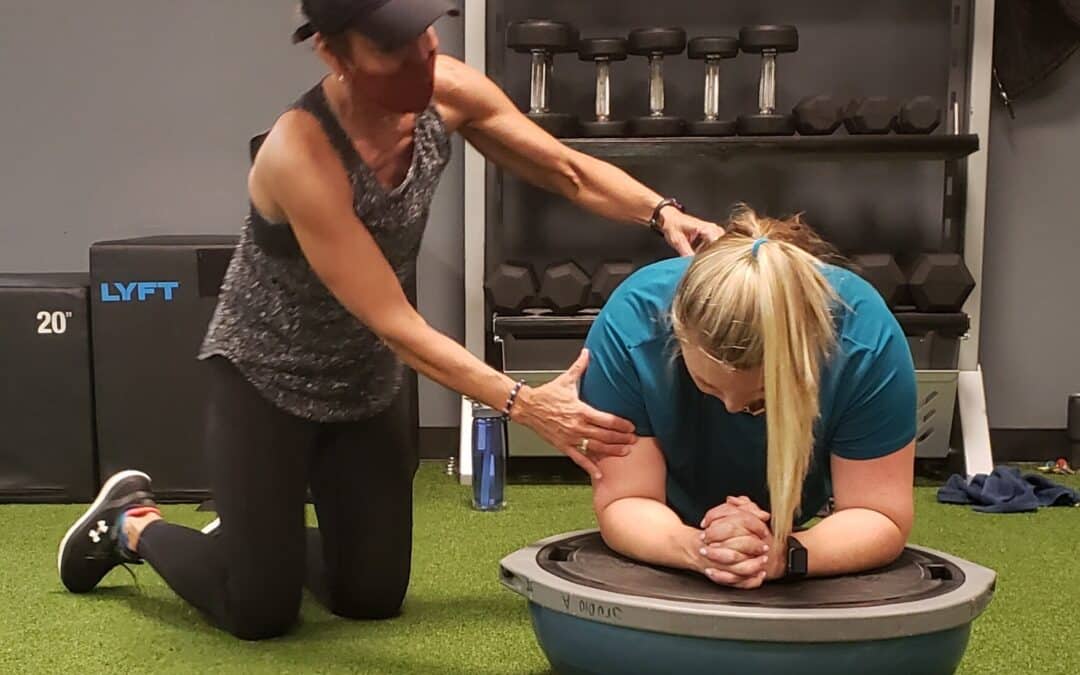One of the few positive outcomes of the COVID-19 pandemic has been an increased collective awareness of mental health and wellness. According to a recent article from IHRSA, researchers have observed a steady decline of mental health and wellness in much of society. Isolation and fear has affected all of us mentally and we’ve all had our episodes of Door Dashed Dairy Queen. When we weren’t able to turn to friends and family for care and comfort we turned to characters on Netflix, but these were poor substitutes for real hugs and connection. A number of factors have contributed to this mental health dip over the past year but physical activity still remains a relatively accessible and important aspect of maintaining mental health. In an effort to boost us all back to the land of the living, let’s look at the importance of getting up, getting out, and getting on the move physically. Science says exercise will do wonders…
Here are 5 important facts about mental health and exercise from IHRSA:
1. COVID-19 has been linked to unfavorable changes in mental health and well-being
According to IHRSA, a study from the Boston University School of Public Health found similar results, finding that depression rates tripled during COVID-19, skyrocketing to 27.8% from around 8.5% pre-pandemic.
2. Physical activity is linked to mental health benefits
According to IHRSA, the relationship between physical activity and mental health has long been known, with government and heath agencies like WHO Europe, CDC, and Australia’s Health Direct highlighting the benefits of exercise for mental health.
Research shows that people who are more physically active:
-
are happier,
-
experience greater levels of excitement and enthusiasm,
-
are more satisfied with life, and
-
have higher self-esteem.
Specifically, studies have shown a relationship between physical activity and anxiety and depression. Results of a 2020 systematic review of meta-analyses on exercise interventions for depression, including 134 total studies, suggest a beneficial effect of exercise on depression symptoms across a wide age range from children to older adults.
3. Physical activity may help people struggling with alcohol and substance use disorders
In the recent article from IHRSA they report that substance use has increased during the pandemic. According to an American Medical Association brief, over 40 U.S. states reported increases in opioid-related mortality, as well as ongoing issues with substance use. According to a Baptist Health Survey, 55% of respondents reported increased alcohol use, and 36% increased illicit drug use. Respondents attributed their use to stress, boredom, and coping with anxiety. However, physical activity can provide an alternative coping mechanism for stress and anxiety and may help people who are recovering.
A review of 22 studies found that exercise can improve abstinence, ease withdrawals, and reduce anxiety and depression among people addicted to alcohol, nicotine, or illicit drugs. Physical activity had a greater impact on depression in alcohol and illicit drug users and on abstinence in illicit drug users than others.
4. Exercise can’t treat mental illness, but it still has benefits for people with mental health disorders
In one study, cited in the article, researchers found that exercise reduced depression symptoms in people with mental illness. An Australian study also found evidence to support physical activity programs as an adjunct therapy for several mental health conditions, including:
-
depression,
-
schizophrenia,
-
anxiety disorders,
-
post-traumatic stress disorder, and
-
substance use disorder.
5. Health and fitness centers have a key role to play in mental health promotion
According to IHRSA, health and fitness centers offer crucial components of mental well-being: community and social inclusion. Fitness centers can provide opportunities for people to socialize, build community, and find belonging and support through offerings such as:
-
personal or small group training,
-
group exercise classes,
-
sports and competition, and
-
special events.
IHRSA reports that fitness centers, like Beechmont, also have the opportunity and means, through social media and their relationship with their members, to provide meaningful education about mental health and well-being and the benefits of physical activity and other factors like nutrition, sleep, and stress management.
Check out Beechmont’s programs for kids, teens, young adults and seniors! We have one of the most versatile facilities in the region. We are here to help you get moving and get back to a thriving state of mind!
For more information about mental health and exercise visit the article: https://www.ihrsa.org/improve-your-club/5-facts-about-mental-health-exercise-during-covid-19/?utm_campaign=Weekly%20Newsletter&utm_medium=email&_hsmi=119681530&_hsenc=p2ANqtz-_iZvCV7BPDrkYoVZ98kuWIvC5z0VfMPAYUBvUxShT1zuf_mP7jOXQ088K3Y9Wi_Uyaamm-b2PYpE-2K793QaTRHy8_Tw&utm_content=119681530&utm_source=hs_email#

